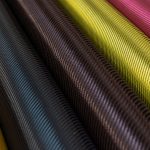SCARPA, in February, released its commitment to sustainability with a series of initiatives to bring the company in line with the highest international standards.
One of the brand’s key initiatives includes achieving Certified B Corporation by 2022, a process that SCARPA has been working toward over the past two years. Certified B Corporations meet the highest standards of verified social and environmental performance, public transparency and legal accountability. Its goal is to “redefine business success by balancing profit and purpose and building a more sustainable economy in the process.”
Actions SCARPA has taken as part of its commitment include:
- 100 percent of the electricity used at the company’s facilities in Italy comes from certified renewable sources to offset approximately 1,000 tons of CO2 per year. Its commitment is boosted, starting at the beginning of 2021, with the exclusive use of low-impact plant biomass energy.
- Photovoltaic systems installed on the company’s buildings produce approximately 400,000 kWh of energy, equivalent to a savings of 320 tons of CO2 emissions per year; this will be upgraded in the coming months to double the amount of self-produced energy.
- SCARPA’s staff working at its corporate headquarters in Asolo, Italy, has received sustainable innovation training. A 16-member Sustainability Ambassadors group, dispersed across every department, is available to answer employee questions about sustainability issues.
- 90 percent of materials that SCARPA uses are created in Europe under advanced regulatory criteria.
- SCARPA’s produces more than 85 percent of its footwear in wholly-owned factories, mostly within Europe, which gives it direct control over the environmental and social practices used, focusing on worker health and safety.
- 60 percent of production happens entirely in Italy, ensuring its high standards, quality and minimizes logistics and transport impacts.
- The company is focused on sustainable production methods and sustainable materials, including the 2021 launch of new eco-friendly products.
- SCARPA uses Pebax Rnew and Grilamid Bio in the shells of its ski boots and the midsole of its Spin 2.0 trail-running shoe. These materials come from the castor plant and require 29 percent less fossil fuel and release 32 percent fewer emissions in the conversion process from raw to usable materials. Also, castor beans can be grown on arid land where agriculture is typically not possible, eliminating competition with food production and offering economic activity in places where other agriculture does not occur.
- In spring 2021, SCARPA will introduce its first 100 percent biodegradable shoe with a biodegradable performance rubber sole, the Mojito Bio. This shoe, a variation on SCARPA’s best-selling style globally, was chosen because of its impact on having earned third-party certification for its biodegradability from Intertrek. At the end of its life, 85 percent of the shoe will decompose after 450 days in a landfill. Shoes made with conventional materials, by contrast, take 40 to 50 years to decompose, and the midsole of many running shoes can last up to 1,000 years in landfill conditions.
“For us, this manifesto is a chance to take stock of what SCARPA is today so that we can imagine what it will be tomorrow,” said President Sandro Parisotto. “Living in and for the mountains, we’ve spontaneously developed a culture of respect for the environment, and now we want to give this a clearer structure so that our values can become a concrete, effective contribution to safeguarding nature and the well-being of society.”
For more on this initiative, go here.






